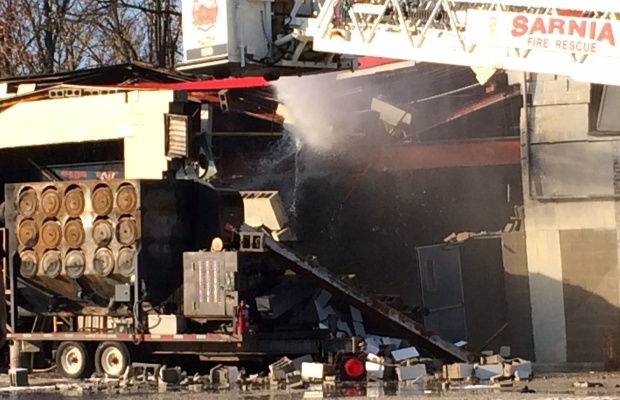If you’re able to escape the frenzy over Cirillo’s death for a moment, it can begin to seem pretty strange how much attention has been given to the killing of one soldier in light of how little concern there is for the hundreds of workers who are killed at work each year. Between 2000 and 2012, the average annual number of workers killed on the job was 972. That’s nearly four workers killed every work day. On Christmas Eve 2009 alone, four migrant construction workers were killed when scaffolding collapsed at their worksite. By comparison, in all of 2013, the total number of police officers killed while on duty in Canada was four.
This is not to suggest that human life should be valued purely in numerical terms. However, the numbers should prompt us to think critically about the priorities of a society in which the very regular harm done to workers is accepted as being normal, while the very rare harm done to soldiers is treated as a national tragedy.
Politicians and pundits tell us that the killing of Cirillo could have been prevented. If only police had more power; if only Canada’s spy agency had more money; if only security forces were more tightly integrated, the attack in Ottawa wouldn’t have happened. The Conservative government of Stephen Harper is using just this sort of reasoning to ram legislation through Parliament that will give police and other security agencies more powers of surveillance and detainment.
Tough on Crime Agenda
Why are lawmakers driven into immediate action in the wake of the exceptional death of a soldier when they do nothing to stop the routine killing of workers who face threats at their jobs every day?
It’s tempting to answer that lawmakers are driven by simple fear for their own safety. The gunman who killed the soldier in Ottawa also fired shots inside Parliament. Critics have argued that parliamentary security is weak. It could be that the government is pressing for new laws because it wants police and spies to have all the power necessary to ensure the national legislature never faces another attack. This is a weak answer, though.
For one thing, the events that took place in Ottawa on October 22nd are not part of a trend, and there is no evidence to suggest that they will become routine. For another, security experts have concluded that it’s unlikely the attack on Parliament Hill could’ve been stopped even if authorities possessed greater surveillance powers and the ability to detain people more easily.
A better explanation views the government’s current attempt to beef-up security as yet another piece of the securitization project that the Conservatives have been pursuing for years. The Harper securitization project includes: a so-called tough on crime agenda, which imposes new mandatory minimum prison sentences for some criminal offenses; the framing of environmental and indigenous activists opposed to tar-sands development as “terrorists”; an increasingly aggressive foreign policy, which notably involves unconditional support for Israel’s ongoing occupation of Palestine; and new efforts to weave military symbolism into the core of Canadian identity.
The one-time killing of a soldier in uniform can be used to build support for the Harper securitization project. The annual killing of hundreds of workers on the job can’t.
In fact, to raise serious concerns about workplace safety, to do what really needs to be done to protect workers would mean requiring employers to put the protection of workers’ lives ahead of making profits. In the ongoing struggle between employers out to make profits and workers out to make a living, the government sides with employers.
Harper’s administration has passed anti-union legislation, denied workers their right to strike, and makes it easier for bosses to exploit migrant labour. The Conservatives have lowered corporate taxes. The government will not risk seeing profit levels decline in order to make workplaces safer.
The shooting in Ottawa has been called an attack on Canadian democracy, a moment that marked the loss of Canada’s innocence. But Canada has never been innocent. The Canadian state was built on land stolen from indigenous peoples. Canada’s wealthy classes have grown rich by dispossessing people at home and around the globe of their land, labour, and resources. Workers in Canada are put at risk daily in order to increase corporate profits. Migrant workers, who lack even the limited protections of Canadian citizenship, are especially vulnerable to employer abuse and harmful job conditions.
The real attack on democracy in Canada is the political-economic system that allows the power and wealth of a few to be secured at the physical and emotional expense of so many.
James Cairns is a member of the Toronto New Socialists and Faculty for Palestine.


